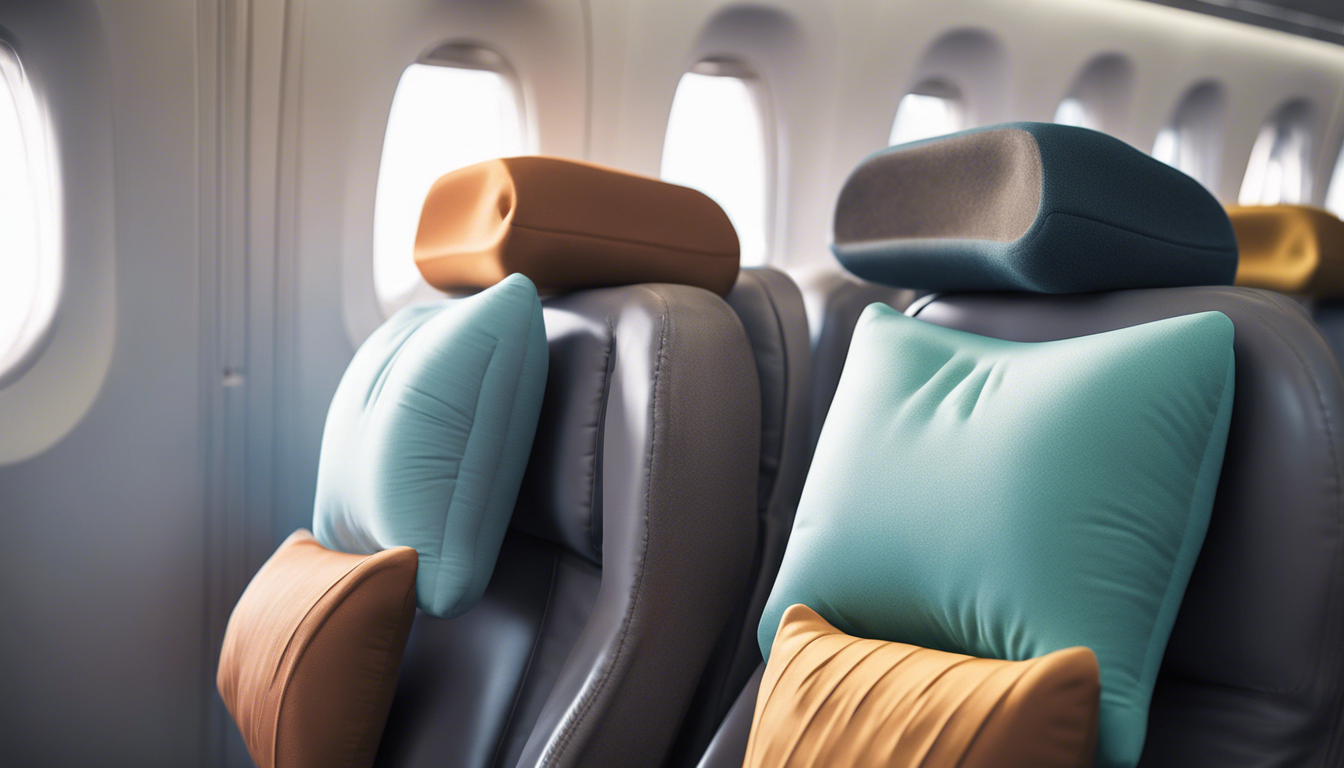Traveling can be an exhausting endeavor, particularly during long haul flights and extensive train rides. The role of a travel pillow becomes crucial as it supports the neck and promotes a posture that can prevent stiffness and discomfort. This exploration into the world of travel pillows will equip you with knowledge to choose the best pillow that aligns with your travel needs.
The market offers a plethora of travel pillow options, each boasting unique features designed to cater to different preferences. From memory foam to inflatable designs, the choice largely depends on individual needs for comfort, convenience, and portability.
Starting with memory foam pillows, these are favored for their ability to mold to the contours of one’s neck, thus providing substantial support. A popular choice is the Cabeau Evolution Memory Foam Travel Pillow, priced around $40. It includes a removable, washable cover and its compact design easily fits into travel bags. However, memory foam pillows are relatively bulkier compared to other types, which may deter some travelers.
In contrast, inflatable travel pillows offer unparalleled convenience when it comes to saving space. The OnGo Seat and Back Travel Cushion, which costs approximately $30, can be inflated with just a few breaths and deflates to fit neatly in a carry-on. The downside is that they may not provide the same level of support and comfort as memory foam and can be noisy during adjustment.
Another innovative model is the Trtl Pillow, scientifically proven to hold the head in an ergonomic position during sleep. Lightweight and easy to pack, it costs about $25. It wraps around the neck like a scarf, providing support without the bulk of traditional travel pillows. However, some users find the fit too restrictive, which might be uncomfortable for prolonged use.
Hybrid travel pillows, which combine memory foam with inflatable components, aim to offer the best of both worlds. The Huzi Infinity Pillow, priced at around $40, is a versatile option that adapods to various sleeping positions. However, the mixed materials can make the texture inconsistent.
Regarding guarantees, most high-quality travel pillows come with a warranty. The Cabeau Evolution, for instance, offers a two-year warranty; a testament to its durability and the company’s confidence in their product. Always check warranty policies to ensure that you are covered against potential defects.
Travel pillow costs can range widely based on materials and brand reputation. Inexpensive options under $10 exist, but may lack longevity and ergonomic benefits. On the higher end, pillows costing upwards of $50 promise enhanced features and ergonomics, which might be worthwhile for frequent travelers.
From a historic perspective, the concept of travel comfort is not new. Ancient travelers were known to use makeshift pillows from bundled garments to ease their journeys. Today, the sophistication in travel pillow technology shows how far we’ve come, incorporating materials like cooling gel pads and moisture-wicking fabrics.
Experts in orthopedics suggest that maintaining a neutral alignment of the spine is crucial during travel to avoid stress and injury. Dr. Emily Splichal, a podiatrist and human movement specialist, recommends selecting a pillow that fills the gap between the neck and the seat back, thereby stabilizing the head and reducing the risk of neck pain.

